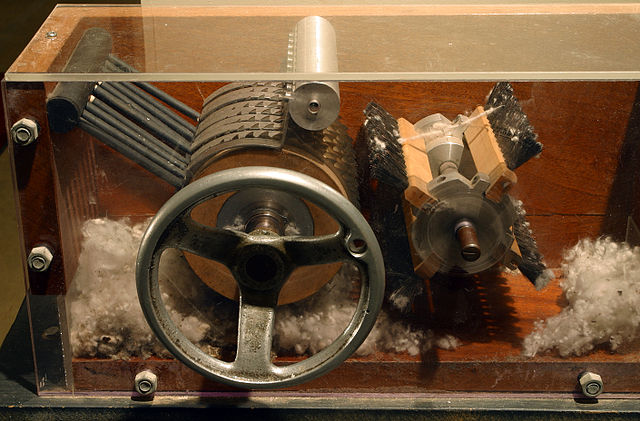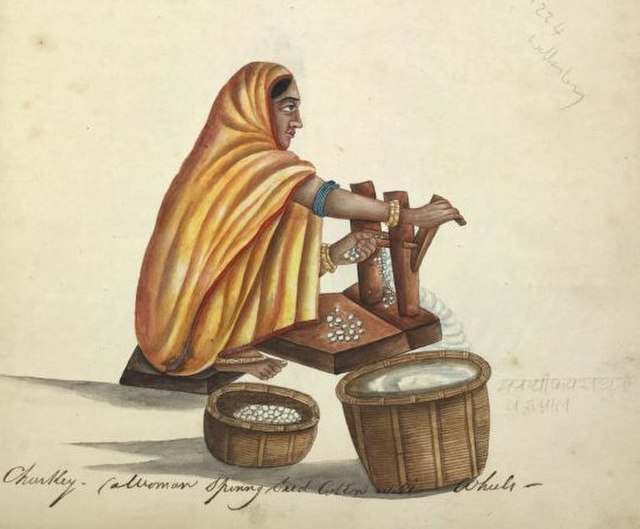Eli Whitney Jr. was an American inventor, widely known for inventing the cotton gin in 1793, one of the key inventions of the Industrial Revolution that shaped the economy of the Antebellum South.
Whitney in 1822
Petition by Whitney to the selectmen of Westborough, Massachusetts, to run a public school, with sample of his penmanship
"First cotton gin" from Harpers Weekly. 1869 illustration depicting event of some 70 years earlier.
Cotton Gin Patent. It shows sawtooth gin blades, which were not part of Whitney's original patent.
A cotton gin — meaning "cotton engine" — is a machine that quickly and easily separates cotton fibers from their seeds, enabling much greater productivity than manual cotton separation. The fibers are then processed into various cotton goods such as calico and canvas, while any undamaged cotton is used largely for textiles like clothing. The separated seeds may be used to grow more cotton or to produce cottonseed oil.
A model of a 19th-century cotton gin on display at the Eli Whitney Museum in Hamden, Connecticut
A cotton boll. Each boll contains several dozen seeds.
An Indian women ginning cotton c.1815-20
A Neuthoni, a type of worm gear cotton gin from Assam.








